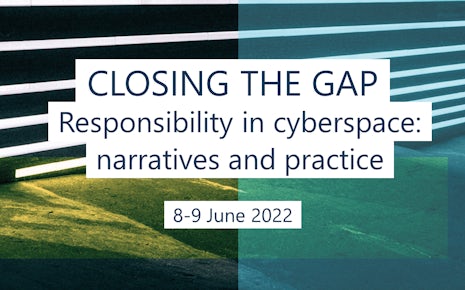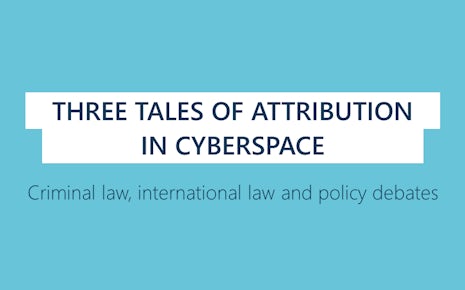Abstract
International law and norms of responsible behaviour are at the heart of the discussions at the United Nations (UN) on Developments in the Field of Information and Telecommunications in the Context of International Security. The purpose of the present study is, therefore, to analyse – and provide food for thought on – the place of international law within the framework of the two processes underway at the UN, the Open-Ended Working Group (OEWG) and the Group of Governmental Experts on Developments in the Field of Information and Telecommunications in the Context of International Security (GGE). It will also explain how international law is being instrumentalised in the present negotiations. The study is comprised of three parts. First, it sets out the context in which these two processes arose, their respective mandates, and the place of international law in their work. Secondly, it examines the ambiguities and consequences associated with the distinction between norms of responsible behaviour and international law. Finally, the last part focuses on the interpretation of certain rules of international law, such as, on the one hand, the responses authorised by international law in reaction to a cyber operation and, on the other hand, the principle of sovereignty. The study then analyses the geopolitical motivations behind this.
Résumé
Le droit international et les normes de comportement responsable sont au cœur des discussions onusiennes sur les progrès de la téléinformatique dans le contexte de la sécurité internationale. L’objet de cette étude est donc d’analyser – et de donner des pistes de réflexion sur – la place du droit international dans le cadre des deux processus en cours à l’ONU – le Groupe de travail à composition non limitée (GTCNL) et le Groupe d’experts gouvernementaux chargés d’examiner les progrès de la téléinformatique dans le contexte de la sécurité internationale (GEG) – et d’expliciter la façon dont le droit international est instrumentalisé dans les présentes négociations. Cette étude est composée de trois parties. Dans un premier temps, elle expose dans quel contexte sont nés ces deux processus et quels sont leurs mandats respectifs et la place qu’y tient le droit international. Dans un deuxième temps, elle s’intéresse aux ambiguïtés et conséquences associées à la distinction établie entre normes de comportement et droit international. Enfin, la dernière partie se concentre sur l’interprétation de certaines règles du droit international que sont, d’un côté, les réponses autorisées par le droit international en réaction à une cyberopération et, de l’autre côté, le principe de souveraineté, et analyse les motivations géopolitiques qui la sous-tendent.



